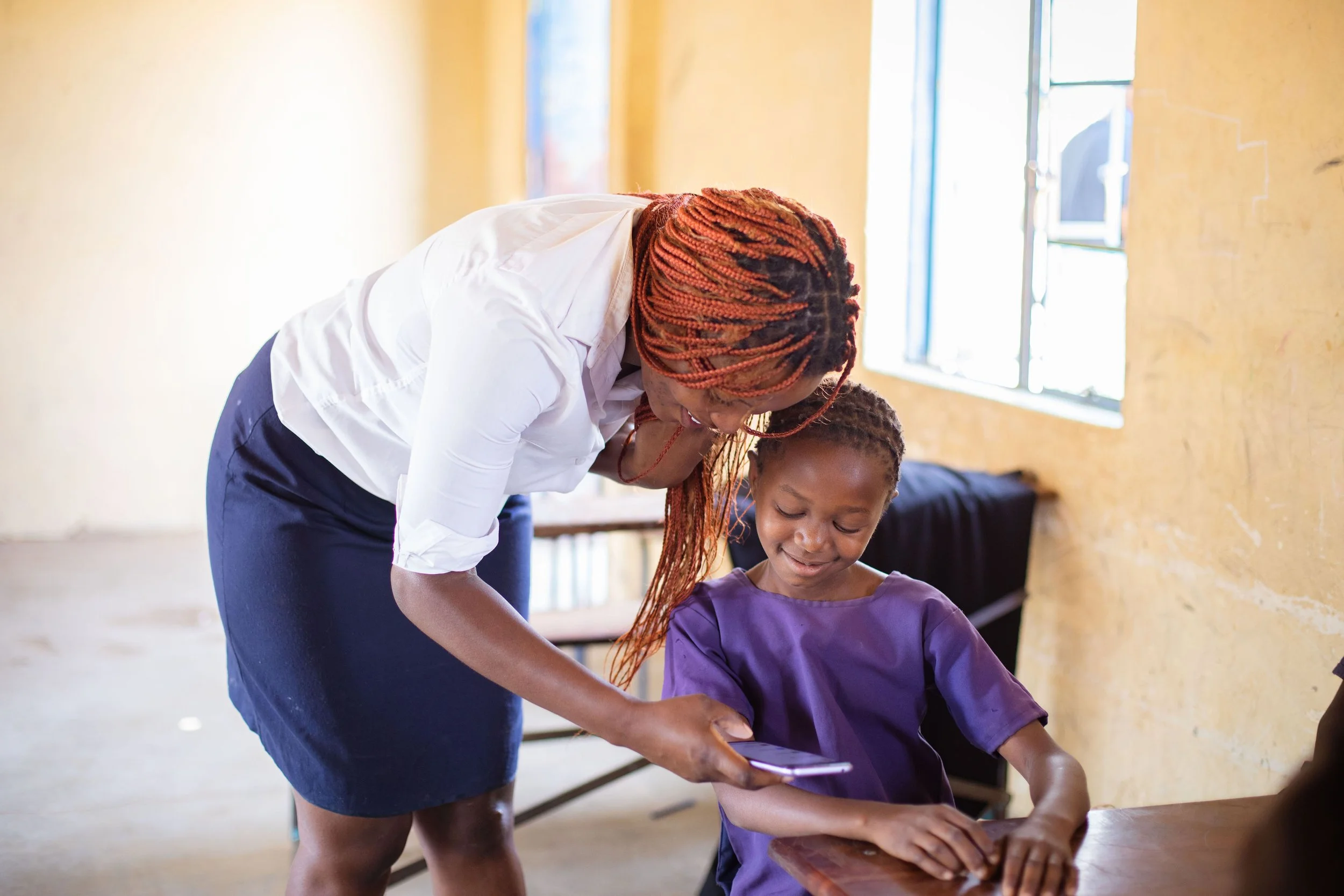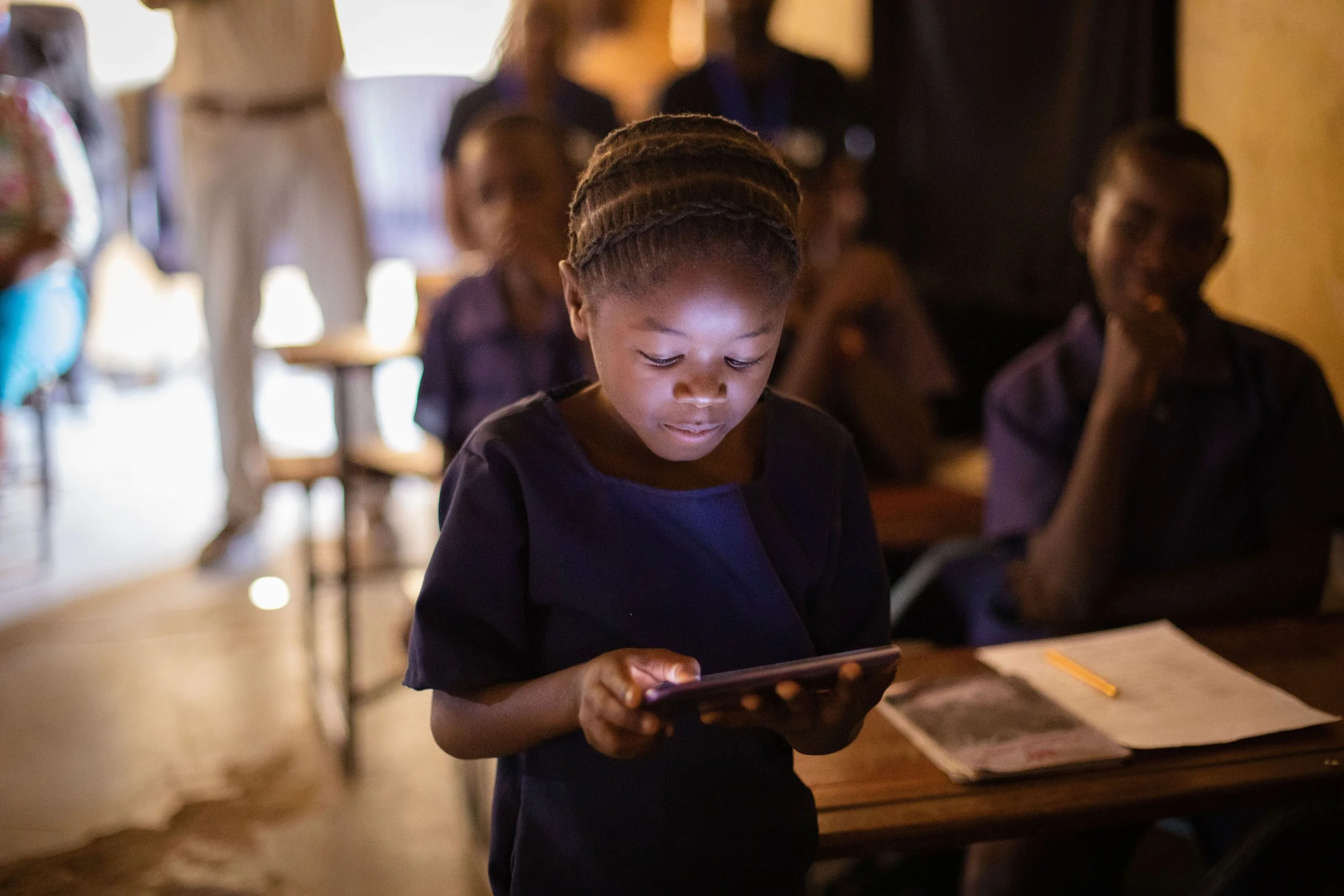Phone-projector model – a sustainable way to support digital transformation
As in many African countries, digital transformation in the Zambian education system requires roll-out of technology at a faster pace than governments and aid agencies are currently funding. Mwabu’s solution to this challenge is the introduction of a phone-projector model which requires less funding in the short-term and is affordable at scale. This model allows limited funds to reach more teachers and learners.
With only one projector in a school and phones or tablets either shared among or owned by teachers, lessons can be enriched with digital content from various sources. Content can be pre-loaded on teacher devices to reduce reliance on often absent or poor connectivity infrastructure and shared with a whole class through a battery-operated projector. Introducing quality content through tech not only advances digital transformation, but also improves learning outcomes.
Where viable, Mwabu can also provide solar solutions to allow charging of devices, a micro-server for offline data collection to enable data-driven decisions as well as internet access through a community WiFi solution.
To further reduce the financial burden of digital transformation, Mwabu recently partnered with the Public Service Microfinancing Company (PSMFC) in Zambia. Teachers are now able to purchase smartphones or tablets, pre-loaded with Mwabu Learn lesson plans and interactive learner content, through Public Service Microfinancing (PSMF). With a personally owned device teachers are encouraged to take on board digital solutions and benefit from electronic device access beyond the classroom.



